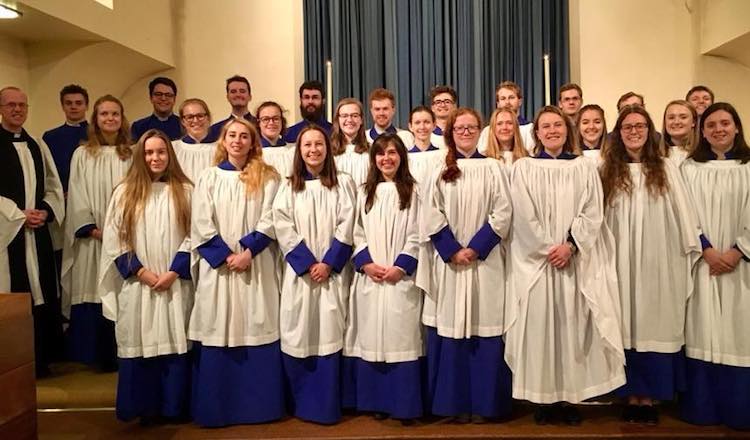The Son of Man came eating and drinking… (Matthew 11:19, NIV)
In my limited experience, Anglican ministry seems to involve quite a lot of eating and drinking. Indeed, you might have got the impression that it involves little else, if you’ve been following the first two parts of this series! But let me take you inside the chapel of Hild Bede College for the remaining two instalments of my placement journal (although next week’s will include yet more food and drink, I confess).
Chapel services are a central part of the ministry of the chaplain here. So on Wednesday this week, as usual, I was at choral evensong, which was sung by this fine group of students (photo from their Facebook page):
My first experiences of choral evensong were as a boy chorister in my local parish church choir. It’s only in more recent years that I’ve attended as a ‘regular punter’, rather than as one of the musicians. But yesterday was another first for me, as I got to lead the service, including chanting the responses.
Anglican ministers have a lot of responsibility for maintaining and developing the church’s traditions. Choral evensong dates back essentially to Thomas Cranmer’s services of Morning and Evening Prayer, from his 1549 Book of Common Prayer (the 1662 version, which is used today, is largely identical). At its heart, it is a simple service, consisting of Bible readings and prayers. But a rich musical tradition has been built up around that.
For around three centuries, choral evensong was only to be found in cathedrals and a few other places. It grew enormously in the 19th century, with parish churches across the land gaining choirs (and organs), but the reverse has been happening in recent decades.
What will the future hold for the English choral tradition?
